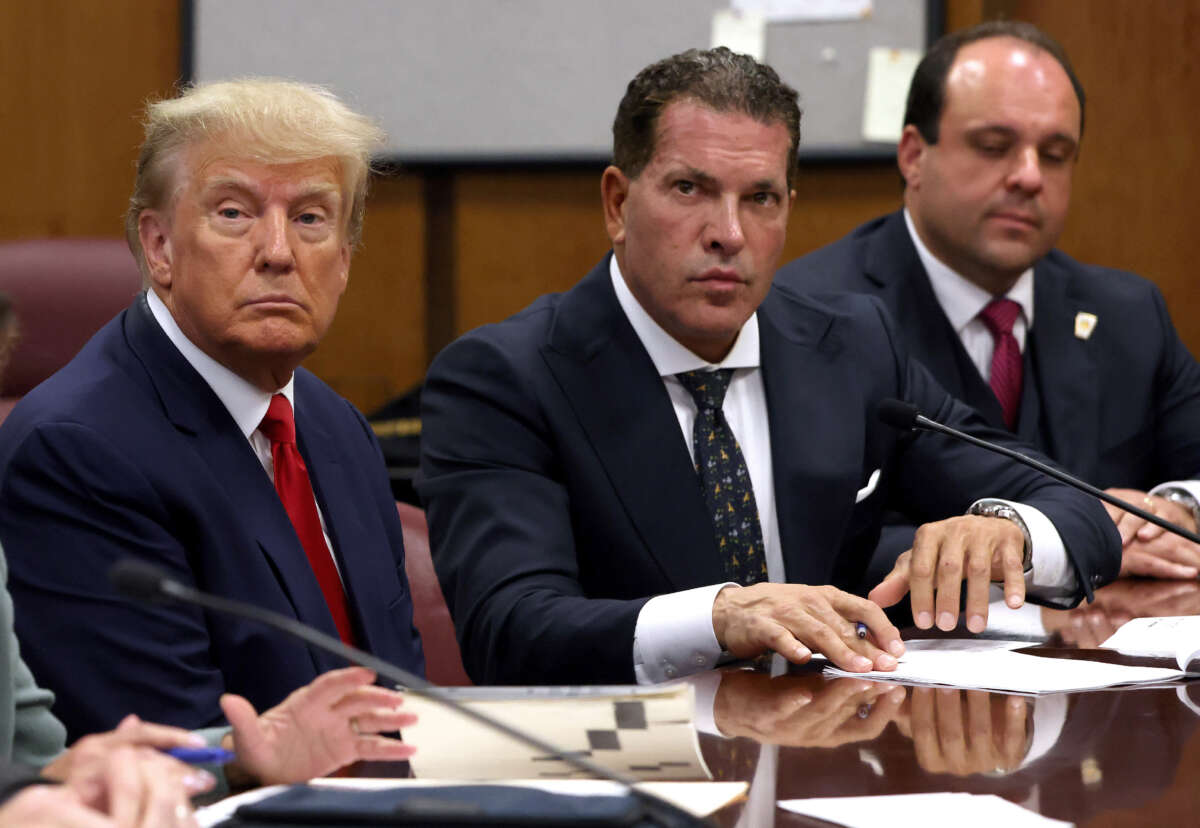Trump attorney Joe Tacopina sought to gain access to the jury room after the judge overseeing E. Jean Carroll’s civil rape and defamation trial against former President Donald Trump ruled that the jury would be anonymous over the risk of harassment and retaliation.
Tacopina on Friday spoke out against U.S. District Judge Lewis Kaplan’s decision to keep juror identities anonymous over concerns about the risk to their privacy and safety.
Kaplan last month “said the need for juror anonymity reflected the ‘unprecedented circumstances in which this trial will take place, including the extensive pretrial publicity and a very strong risk that jurors will fear harassment, unwanted invasions of their privacy, and retaliation,'” according to Reuters.
Tacopina previously sought the judge’s permission to access juror identities in a letter to Kaplan last week. “Team Trump is also asking Judge Kaplan to use a juror questionnaire and reconsider his ruling that not even the attorneys can know the names of potential jurors,” wrote MSNBC analyst Lisa Rubin.
On Monday, Tacopina sent another letter to Kaplan urging him to reconsider the ruling and pushing to be “involved at all stages of the jury selection process.”
“While [we] understand that the Court has discretion over how to conduct jury selection in a civil case, we submit that counsel should be involved at all stages of the jury selection process (even in the Jury Assembly Room),” the letter says. “We also submit that counsel should have input into the Court’s description of the case as well as into the questions asked of potential jurors in the Jury Assembly Room. Rule 47 makes it clear that the parties and their counsel have that right, and further, a more robust jury selection process in this case will serve the interests of justice. We would note that, in this regard, we already have submitted to the Court proposed voir dire questions to be asked, which have yet to be ruled upon. However, for present purposes we do wish to inquire further as to the Court’s planned process.”
Rubin called Tacopina the “Chumbawumba of New York lawyers,” in an apparent reference to the band’s song “Tubthumping.”
“He gets knocked down, and he gets up again,” she wrote in a Monday tweet. “He just filed a letter asking for clarification on the jury selection process in the Carroll trial — & insisting on his right to be in the rooms where it happens.”
Tacopina has seen a flurry of media attention in recent months related to Trump’s legal troubles. In a separate letter, he and fellow Trump attorney Alina Habba requested last week that Judge Kaplan delay the rape trial proceedings for four weeks, citing the “deluge of prejudicial media coverage concerning his unprecedented criminal indictment and arraignment in Manhattan.” Kaplan rejected the request on Monday, partly faulting Trump for the media frenzy around his arrest.
Last month, ahead of Trump’s formal charging of 34 felony counts related to the falsification of business records, Tacopina drew criticism when he lunged to snatch documents from MSNBC host Ari Melber during a heated interview.
Tacopina has also been at the center of reported infighting among Trump’s legal team, with other MAGA lawyers reportedly calling him “dumb,” “a loudmouth,” and “such a frickin’ idiot.”
Our most important fundraising appeal of the year
December is the most critical time of year for Truthout, because our nonprofit news is funded almost entirely by individual donations from readers like you. So before you navigate away, we ask that you take just a second to support Truthout with a tax-deductible donation.
This year is a little different. We are up against a far-reaching, wide-scale attack on press freedom coming from the Trump administration. 2025 was a year of frightening censorship, news industry corporate consolidation, and worsening financial conditions for progressive nonprofits across the board.
We can only resist Trump’s agenda by cultivating a strong base of support. The right-wing mediasphere is funded comfortably by billionaire owners and venture capitalist philanthropists. At Truthout, we have you.
We’ve set an ambitious target for our year-end campaign — a goal of $250,000 to keep up our fight against authoritarianism in 2026. Please take a meaningful action in this fight: make a one-time or monthly donation to Truthout before December 31. If you have the means, please dig deep.
